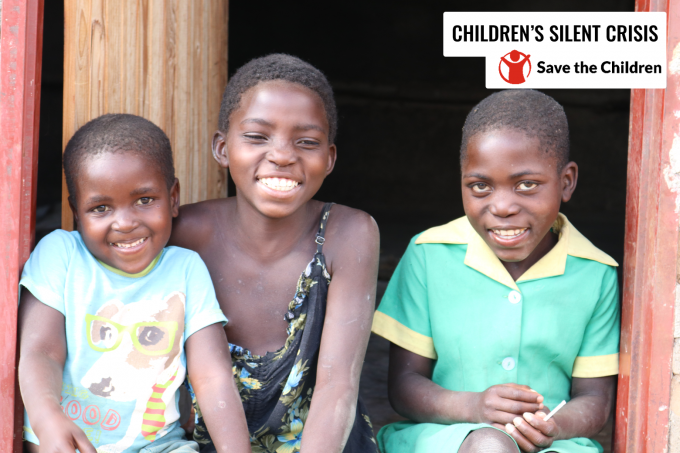SC COUNTRY DIRECTOR'S MESSAGE: CHILDREN'S SILENT CRISIS

by Heather Kerr: Country Director- Save the Children, Zimbabwe
World Children’s Day is celebrated on 20 November each year. This day offers us an opportunity to promote, and celebrate children's rights and call for actions that will build a better world for children. November 20 is a very important date as it marks the day the UN general assembly adopted the Declaration of the Rights of the Child in 1959 and United Nations Convention on the Rights of Children (UNCRC) in1989. Save the Children takes pride in this day as it reminds us of the role our founder, Eglantyne Jebb played in drafting the Declaration of the Rights of the Child. We join the rest of the world in celebrating children under the theme Inclusion for Every Child. World Children’s day also coincides with the 16 Days of Activism against Gender-Based Violence campaign, calling for unity in ending violence against women and children.
We are thankful to the government for ratifying the UNCRC and setting legislation and policies that promote the rights of children in Zimbabwe. In recent years, we have witnessed the passing into law of the Education Amendment Act of 2020, and the Marriages Act that sets the legal age of Marriage at 18 years. We appreciate the participation of children in advocating their rights through child led structures such as Junior Parliament, Junior Councils and other junior structures as provided for by the National Youth Policy. The National Development Strategy 1 (NDS1) is pro-children through its provisions for children’s needs such as inclusive education.
Save the Children values child participation. We understand nothing can be done for the child without the child. It is on this background we established the Children’s Advisory Board, with whom I am co-presenting this statement. Save the Children continues complementing government efforts in ensuring children enjoy their rights to survival, protection, development and participation. This year, 39,464 children (21,206 girls and 18,258 boys), have so far benefitted from our interventions which include Health and Nutrition, WASH, Child Protection and Food Security and Livelihoods. We have supported the government in responding to the COVID-19 pandemic and the recent Measles outbreak. We have also supported the government to strengthen child protection systems especially for children caught up in irregular migration. Save the Children has also provided cash transfers and sustainable livelihoods skills to families affected by food insecurity.
We are inspired by the theme Inclusion for Every Child, yet we commemorate the day in a sombre mood hence the title of my address Children’s Silent Crisis. 33 years after the declaration of the UNCRC, we continue to witness child rights violations in Zimbabwe. The media has been awash with reports of gruesome child rights violations that include murder, exploitation, neglect, physical abuse and sexual abuse- with recent reports on two 9 year olds who fell pregnant after being sexually violated. Children are engaging in drug and substance abuse as an escape from the challenges they experience on a daily basis. As children face these violations, as a nation we need to pause and self-introspect. How can we end violence against children and ensure no child is left behind? Where is the gap? How can children be involved? Whilst we appreciate the government’s efforts we have noted there are gaps that are perpetuating the children’s crisis. These include but are not limited to;
- Non alignment of laws that protect children for effective justice e.g. Children’s Bill, age estimation, age of consent vis-a-vis the Marriages Act.
- Minimal investment in children. A lot still needs to be done to ensure child friendly public service budget commitments and spending, especially with emerging needs like Mental Health.
- Lack of community awareness on the different laws that protect children e.g. children are still being married off despite the provisions of the Marriages Act which sets the legal age of marriage at 18 years.
- Negative social norms as enshrined in some religious and cultural practices.
- Children are seen and not heard in some families and institutions thus limiting their participation in matters affecting them. Child participation lacks listenership and action by duty bearers from the family institution to national levels.
We call upon the parents, the community, CSOs, duty bearers and other stakeholders to:
- Uphold children’s rights to participation in all development platforms i.e. Junior School Development Committees, Junior Councils, Child Parliament.
- Respect and act upon children’s views and opinions on issues affecting them.
- Empower children, so they can demand accountability from respective duty bearers.
- Put in place stiffer penalties for child rights’ violators, with the State setting up a national offender’s register.
- Call upon state and non-state actors to invest more in children at all budgeting levels.
-THANK YOU-
 Zimbabwe
Zimbabwe